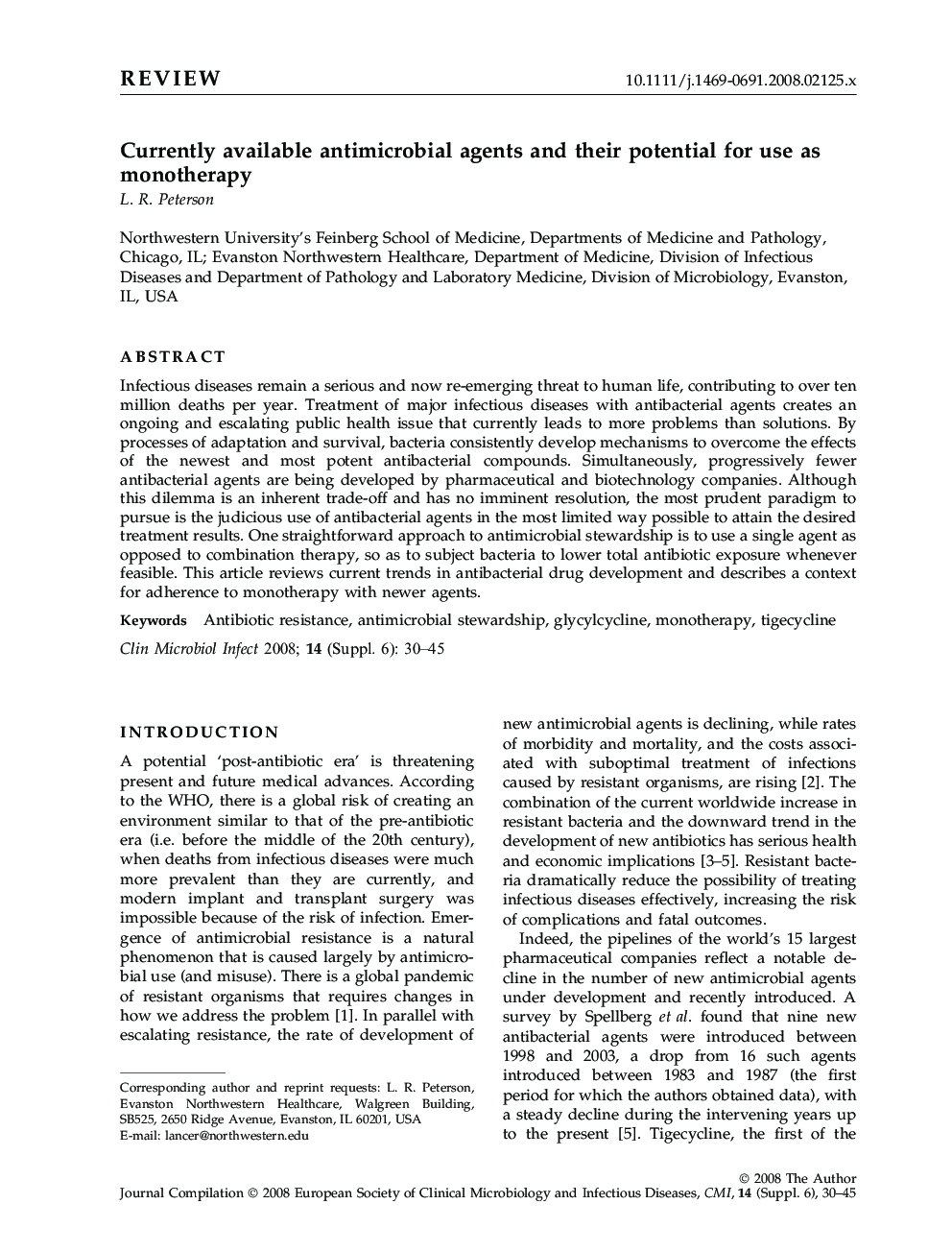| Article ID | Journal | Published Year | Pages | File Type |
|---|---|---|---|---|
| 3397996 | Clinical Microbiology and Infection | 2008 | 16 Pages |
ABSTRACTInfectious diseases remain a serious and now re-emerging threat to human life, contributing to over ten million deaths per year. Treatment of major infectious diseases with antibacterial agents creates an ongoing and escalating public health issue that currently leads to more problems than solutions. By processes of adaptation and survival, bacteria consistently develop mechanisms to overcome the effects of the newest and most potent antibacterial compounds. Simultaneously, progressively fewer antibacterial agents are being developed by pharmaceutical and biotechnology companies. Although this dilemma is an inherent trade-off and has no imminent resolution, the most prudent paradigm to pursue is the judicious use of antibacterial agents in the most limited way possible to attain the desired treatment results. One straightforward approach to antimicrobial stewardship is to use a single agent as opposed to combination therapy, so as to subject bacteria to lower total antibiotic exposure whenever feasible. This article reviews current trends in antibacterial drug development and describes a context for adherence to monotherapy with newer agents.
